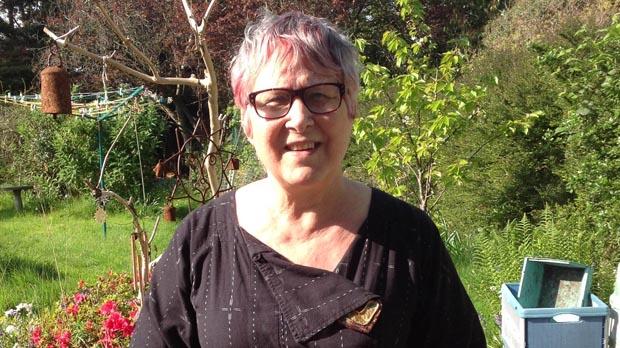
"I was delighted to take part in a clinical trial as it has the potential to really help others in the future.”
Please note - this trial is no longer recruiting patients. We hope to add results when they are available.
This trial is for people with cancer of the food pipe (oesophagus) or the area where the food pipe joins the stomach (gastro oesophageal junction).
It is for people who have had:
Cancers that start in the food pipe (oesophageal cancer) or in the area where the food pipe joins the stomach (gastro oesophageal junction cancer) are often treated with chemoradiotherapy and then surgery to remove all or part of the oesophagus.
After surgery, doctors look at the tissue removed. If they find cancer cells in the tissue, this is residual disease.
If you have residual disease you have a higher chance of the cancer coming back. So doctors are looking at a targeted cancer drug (biological therapy) called nivolumab to try to stop the cancer coming back.
Nivolumab (Opdivo) is a type of  . It works by blocking a protein called PD-1 on the surface of certain immune cells called T-cells. Blocking this protein activates the T-cells to find and kill cancer cells.
. It works by blocking a protein called PD-1 on the surface of certain immune cells called T-cells. Blocking this protein activates the T-cells to find and kill cancer cells.
In this trial you have 1 of the following:
 )
)The main aims of this trial are to:

The following bullet points list the entry conditions for this trial. Talk to your doctor or the trial team if you are unsure about any of these. They will be able to advise you.
You may be able to join this trial if all of the following apply:
 such as cisplatin
such as cisplatin Women must be willing to use reliable contraception during treatment and for 5 months afterwards if there is any possibility of becoming pregnant. Men must be willing to use reliable contraception during treatment and for 7 months afterwards if there is any possibility their partner could become pregnant
You cannot join this trial if any of these apply:
Cancer related
 of the bladder, prostate, cervix and breast or successfully treated basal or squamous cell skin cancer
of the bladder, prostate, cervix and breast or successfully treated basal or squamous cell skin cancer Medical conditions
 unless it is vitiligo, type 1 diabetes, hair loss (alopecia), thyroid problems that are controlled by medications or a skin condition called psoriasis that doesn’t need treatment
unless it is vitiligo, type 1 diabetes, hair loss (alopecia), thyroid problems that are controlled by medications or a skin condition called psoriasis that doesn’t need treatment Other
This is an international phase 3 trial. The researchers need about 760 people worldwide and around 15 people from the UK to take part.
This trial is randomised. The people taking part are put into 1 of the following treatment groups by computer:
Neither you nor your doctor are able to decide which group you are in. And neither you nor your doctor will know which group you are in. This is a  .
.
You are 2 times more likely to have nivolumab than the dummy drug.

You have nivolumab or the dummy drug as a drip into a vein. You have it:
It takes about 30 minutes each time.
Quality of life
Everybody taking part in this trial completes a quality of life questionnaire before starting treatment and then:
It asks about how you have been feeling and what side affects you have had.
Blood tests
You have some extra blood tests as part of this trial. Researchers want to:
 to see why treatments work better for some people than others
to see why treatments work better for some people than othersYou have the extra blood tests before starting treatment, at set times during the trial and if your cancer comes back.
Tissue sample
Researchers will ask to use a sample of your cancer taken during surgery. They want to look for certain proteins and  to find out more about oesophageal cancer and how the treatment works.
to find out more about oesophageal cancer and how the treatment works.
Doctors might also ask you to give a tissue sample ( ) if your cancer comes back.
) if your cancer comes back.
You see a doctor and have some tests before taking part. These tests include:
 )
)During treatment you see the trial doctor for blood tests and a physical examination every 2 weeks for 4 months. Then you see the doctor every month.
You have a CT scan or MRI scan every 3 months while you are having treatment.
You have treatment for as long as there are no signs of your cancer coming back and the side effects aren’t too bad. It can be for up to 1 year.
When you finish treatment you see the doctor after 1 and 3 months. You have blood tests and a physical examination.
You then see or speak with the trial team every 3 months. This continues for about 5 years.
You also have a CT scan or MRI scan:
The trial team monitor you during the time you have treatment and you have a phone number to call them if you are worried about anything. The team will tell you about all the possible side effects before you start the trial.
The most common side effects of nivolumab are:
We have more information about nivolumab.
Please note: In order to join a trial you will need to discuss it with your doctor, unless otherwise specified.
Dr Bateman
Bristol-Myers Squibb
If you have questions about the trial please contact our cancer information nurses
Freephone 0808 800 4040

"I was delighted to take part in a clinical trial as it has the potential to really help others in the future.”